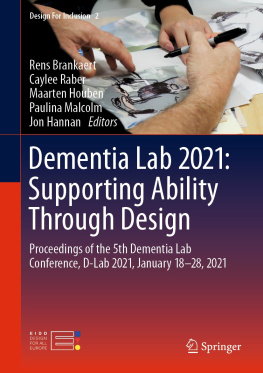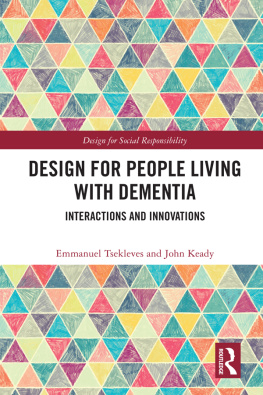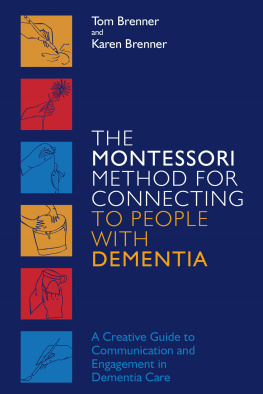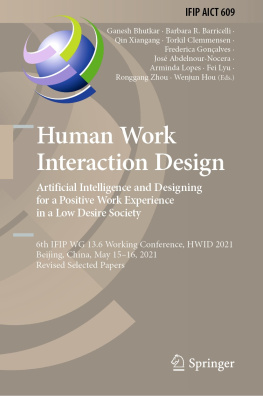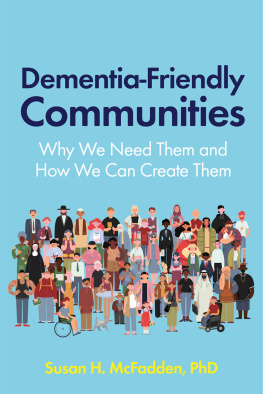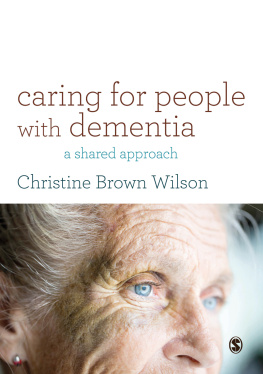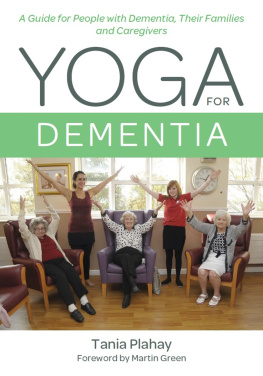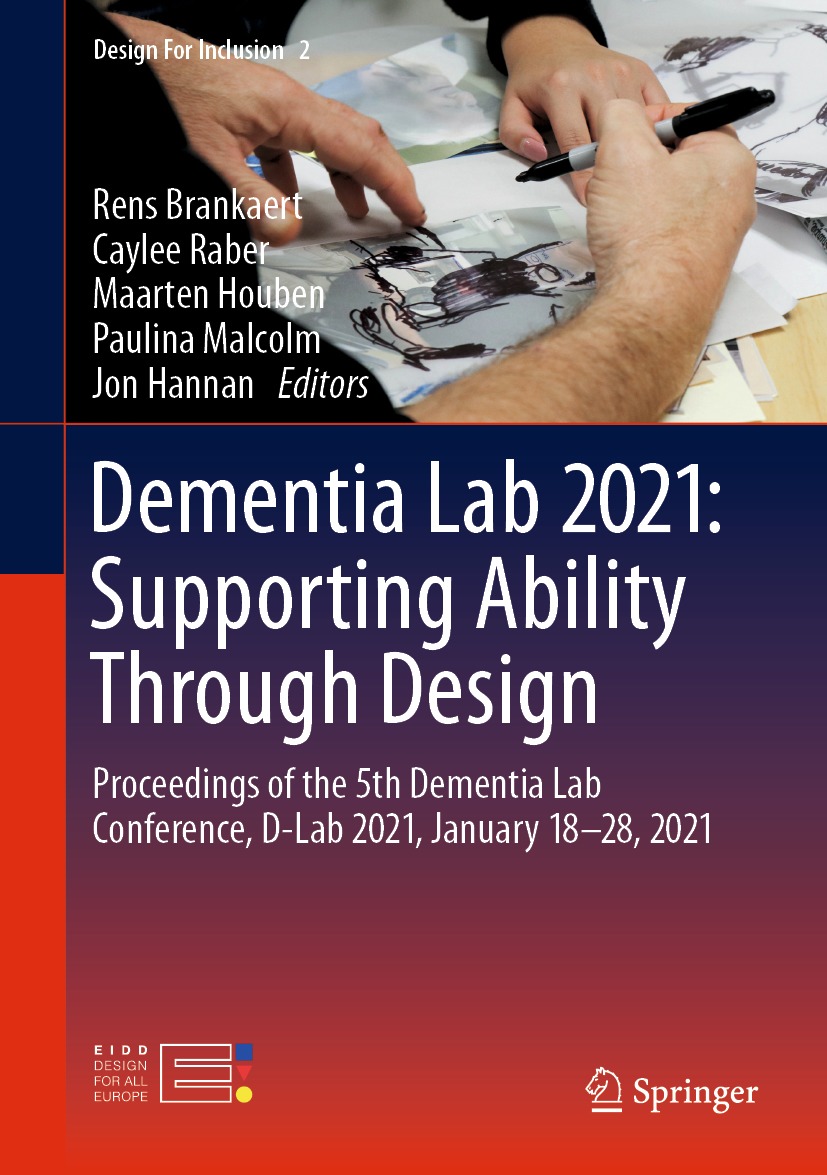Volume 2
Design For Inclusion
Series Editor
Giuseppe Di Bucchianico
Department of Engineering and Geology, University of Chieti-Pescara, Pescara, Italy
The book series Design for Inclusion publishes studies aimed at untangling the complex relationships between design and society, especially with regard to human diversity and inclusion. The series cover the classical fields of industrial design, such as product design, interior design, service design and communication design, with a special focus on their interactions with other disciplines, such as the physical and social sciences. In particular, the series reports on the latest developments, both theoretical and practical, concerning different approaches to Design for Inclusion: Universal Design, Inclusive Design, and Design for All. It shares insights into their multiple, interdisciplinary relationships with both the human sciences and the transversal frameworks and approaches typical of Human-Centered Design (HCD) and Design for Sustainability. Design for Inclusion addresses a very broad readership, including designers, engineers, architects, social scientists and stakeholders, who deal with any of the topics mentioned above and their various implications. It publishes volumes fostering scientific advances, as well as books devoted to supporting education and professional training. These include monographs, edited books and conference proceeding. Outstanding PhD theses on emerging topics, if properly reworked, may also be considered for publication. This book series is published with the support of EIDD - Design for All Europe.
More information about this series at http://www.springer.com/series/16456
Editors
Rens Brankaert , Caylee Raber , Maarten Houben , Paulina Malcolm and Jon Hannan
Dementia Lab 2021: Supporting Ability Through Design
Proceedings of the 5th Dementia Lab Conference, D-Lab 2021, January 1828, 2021
1st ed. 2021

Logo of the publisher
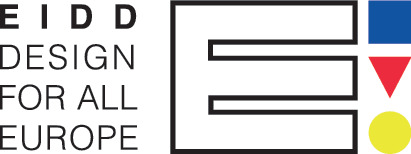
Logo of the publisher
Editors
Rens Brankaert
Department of Industrial Design, Eindhoven University of Technology, Eindhoven, The Netherlands
School of Allied Health Professions, Fontys University of Applied Sciences, Eindhoven, The Netherlands
Caylee Raber
Health Design Lab, Emily Carr University of Art + Design, Vancouver, BC, Canada
Maarten Houben
Department of Industrial Design, Eindhoven University of Technology, Eindhoven, The Netherlands
Paulina Malcolm
Health Design Lab, Emily Carr University of Art + Design, Vancouver, BC, Canada
Jon Hannan
Health Design Lab, Emily Carr University of Art + Design, Vancouver, BC, Canada
ISSN 2662-5644 e-ISSN 2662-5652
Design For Inclusion
ISBN 978-3-030-70292-2 e-ISBN 978-3-030-70293-9
https://doi.org/10.1007/978-3-030-70293-9
The Editor(s) (if applicable) and The Author(s), under exclusive license to Springer Nature Switzerland AG 2021
This work is subject to copyright. All rights are solely and exclusively licensed by the Publisher, whether the whole or part of the material is concerned, specifically the rights of translation, reprinting, reuse of illustrations, recitation, broadcasting, reproduction on microfilms or in any other physical way, and transmission or information storage and retrieval, electronic adaptation, computer software, or by similar or dissimilar methodology now known or hereafter developed.
The use of general descriptive names, registered names, trademarks, service marks, etc. in this publication does not imply, even in the absence of a specific statement, that such names are exempt from the relevant protective laws and regulations and therefore free for general use.
The publisher, the authors and the editors are safe to assume that the advice and information in this book are believed to be true and accurate at the date of publication. Neither the publisher nor the authors or the editors give a warranty, expressed or implied, with respect to the material contained herein or for any errors or omissions that may have been made. The publisher remains neutral with regard to jurisdictional claims in published maps and institutional affiliations.
This Springer imprint is published by the registered company Springer Nature Switzerland AG
The registered company address is: Gewerbestrasse 11, 6330 Cham, Switzerland
Preface
After a year of change and challenges, we are pleased to invite you to read the proceedings of Dementia Lab 2021, centred on the theme of Supporting Ability. These proceedings contain papers and ideas presented virtually at the fifth installment of the conference, hosted by the Health Design Lab at Emily Carr University of Art and Design.
The Dementia Lab is an inclusive multidisciplinary community including designers, artists, researchers, health professionals, carers, and people living with dementia. This years event and the papers contained here, highlight issues and innovations surrounding ability and disability, focusing on ways we can engage with people living with dementia that are not determined or limited by what they cannot do, but instead embrace ways in which they are able to contribute.
The papers in these proceedings speak to the themes of: (1) engagement: ethics of inclusion and shifting the culture of care to one focused on both personal independence and reconnecting with the community; (2) empowerment: new ways of designing with/for those living with dementia, embracing challenges and tackling stigma to break negative stereotypes and preconceived opinions; (3) identity: approaches to countering social isolation, retaining personhood/dignity and fostering empathy.
The ideas and conversations presented here reflect on how design and research efforts can lead the way in uncovering, supporting and enhancing the abilities of people with dementia and the community within which they live by involving them in the conversation. Little did we know when we conceived of this conference theme, that a pandemic would further challenge all of us to reconsider approaches to inclusion and participation. Supporting ability in the past year has taken on new forms as designers, researchers, carers and people living with dementia have adapted to working and collaborating in new ways, facing unforeseen challenges and making the best of new opportunities. A few papers in these proceedings speak to emerging strategies for virtual engagement, furthered by live discussions and workshops in the virtual Dementia Lab 2021 event.
This years event was organized by the Health Design Lab at Emily Carr University of Art and Design, in collaboration with the events founders from the LUCA School of Arts (Belgium), and design researchers from Eindhoven University of Technology (The Netherlands). A core focus of the work in the Health Design Lab is centred on the use of participatory design methods to support culture change within long-term care homes, amplifying the voice and choice of people with dementia and those living in care. In adapting to the pandemic by shifting to a virtual event, the theme of inclusion for this conference is enhanced, by enabling a wider range of participants from around the world to tune in.

